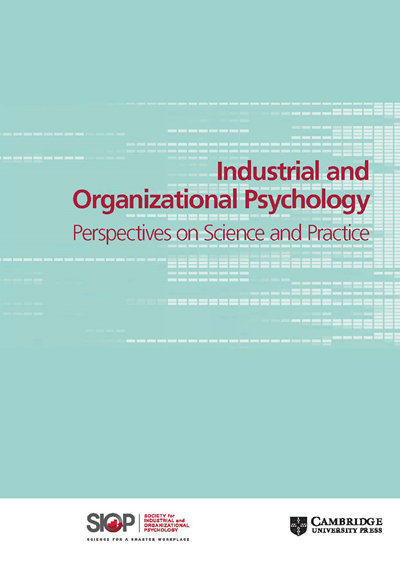The importance of reflective practices for decision makers: A possible part of the solution for helping the field
IF 4.3
3区 心理学
Q1 PSYCHOLOGY, APPLIED
Industrial and Organizational Psychology-Perspectives on Science and Practice
Pub Date : 2023-03-01
DOI:10.1017/iop.2022.107
引用次数: 1
Abstract
This commentary expands on the focal article ’ s (Hyland, 2023) notion about the importance of reflective and reflexive practice in the field of industrial-organizational (I-O) psychology. Hyland states that reflective practices could be beneficial to everyone, bringing out that it could have benefits across all types of stakeholders in the field of I-O. Nevertheless, with the aim of developing the field, we feel that there is a specific group of I-O professionals that should be targeted first, rather than simultaneously getting everyone on board with reflective and reflexive practices. We argue that reflective practices within the field will be most effective when exhibited by stakeholders with decision-making rights and responsibilities. Although we agree that teaching reflective practices as part of official education would improve the professional (and personal) capacities of I-O psychologists and thus further develop the field, a focus on junior I-Os seems to omit key decision makers (e.g., executives, journal editors, and those in similar leadership positions) who actively shape the field now. We introduce the importance of reflectivity across generations of I-O professionals and discuss the benefits of extending the emphasis of reflective practices to key stakeholders, decision makers, and practitioners in addition to trainees.反思性做法对决策者的重要性:帮助实地的解决方案的一个可能部分
本评论扩展了焦点文章(Hyland, 2023)关于反思和反思性实践在工业组织(I-O)心理学领域的重要性的概念。Hyland指出,反思实践可能对每个人都有益,并指出它可能对I-O领域的所有类型的利益相关者都有好处。然而,为了发展这一领域,我们认为应该首先针对特定的I-O专业人员群体,而不是同时让每个人都参与反思和反身性实践。我们认为,当具有决策权和责任的利益相关者展示时,该领域内的反思实践将是最有效的。虽然我们同意将反思实践作为官方教育的一部分将提高I-O心理学家的专业(和个人)能力,从而进一步发展这一领域,但对初级I-O的关注似乎忽略了目前积极塑造这一领域的关键决策者(例如,高管、期刊编辑和那些处于类似领导地位的人)。我们介绍了反思性在几代I-O专业人士中的重要性,并讨论了将反思性实践的重点扩展到关键利益相关者、决策者和从业者以及受训人员的好处。
本文章由计算机程序翻译,如有差异,请以英文原文为准。
求助全文
约1分钟内获得全文
求助全文
来源期刊

Industrial and Organizational Psychology-Perspectives on Science and Practice
PSYCHOLOGY, APPLIED-
CiteScore
7.70
自引率
10.10%
发文量
85
期刊介绍:
Industrial and Organizational Psychology-Perspectives on Science and Practice is a peer-reviewed academic journal published on behalf of the Society for Industrial and Organizational Psychology. The journal focuses on interactive exchanges on topics of importance to the science and practice of the field. It features articles that present new ideas or different takes on existing ideas, stimulating dialogue about important issues in the field. Additionally, the journal is indexed and abstracted in Clarivate Analytics SSCI, Clarivate Analytics Web of Science, European Reference Index for the Humanities and Social Sciences (ERIH PLUS), ProQuest, PsycINFO, and Scopus.
 求助内容:
求助内容: 应助结果提醒方式:
应助结果提醒方式:


